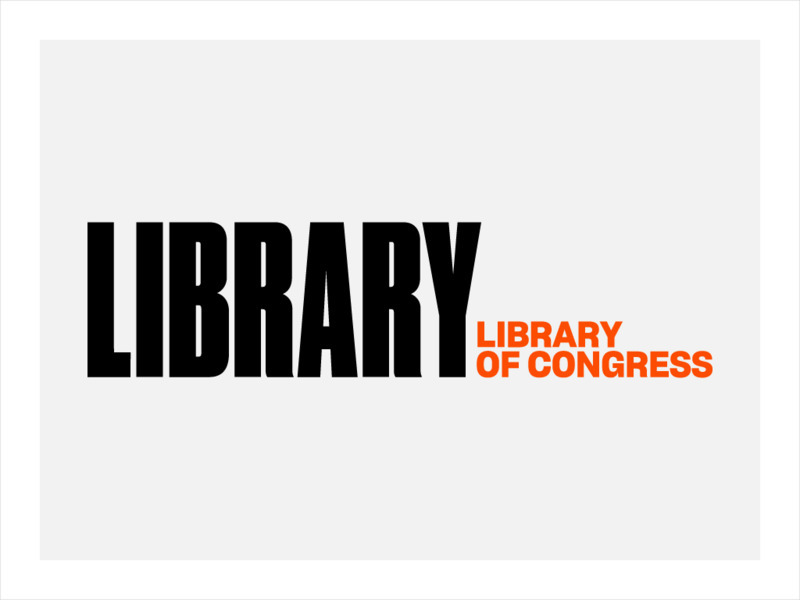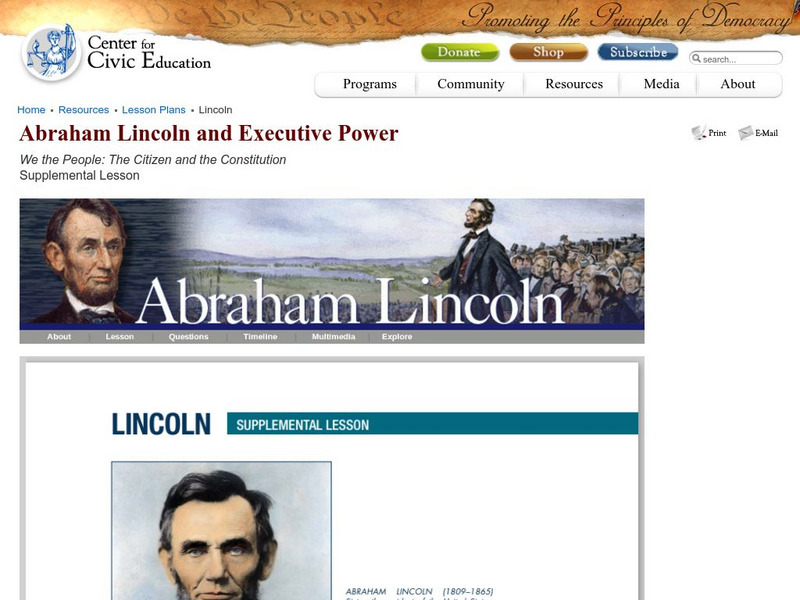Hi, what do you want to do?
Curated OER
Looking at the Old South: Music and Culture
Students use different styles of music to research society, history and culture in the American South. They, in groups, research an assigned piece of music and make a presentation to the class. They keep a daily journal as well.
Curated OER
Conservation: California Quarter Reverse
Students examine the California quarter reverse and discuss conservation measures. They discover the concept of conservation by a snack-eating experimen and relate it to John Muir's conservation interests. After evaluating the design...
Curated OER
Debate - Election of 1876
Eleventh graders examine how Rutherford Hayes should be elected President of United States in order for the Union to continue effective Reconstruction.
Curated OER
Let's Make History -- Together
Students examine different pieces of art from different artists. They are to read "About the Art" before viewing. They create their own plasticine tile showing people in action from history.
Curated OER
Lincoln, Douglass, and Black Emergence (Literature and Politics, 1840-1865)
Students examine the ideas of Lincoln and Douglass. In groups, they compare and contrast writings from each man and how they formed the nation with their ideas. After watching "Glory", they discuss how people like Lincoln and Douglass...
Curated OER
Ideas and Commodities Cross Cultural Regions
Learners compare and contrast how commodities native to certain countries have impacted the economies of other nations. After gathering information regarding how commodities are grown and traded, students use their information to...
Curated OER
Before Rosa Parks: Upper Grades Activity: Frances Watkins Harper
Students analyze the rhetorical strategies Frances Watkins Harper used, such as tone, emotional appeal and descriptive language
Curated OER
Hull of a Ship
Fifth graders engage in this introductory unit lesson. A bulletin board for the unit be started, Colonial Notebooks be presented to each student, and a pre-test on colonization be administered.
Curated OER
Stylistic Aspects of Spiritual Singing
Students sight-read a piece of music and analyze two unfamiliar pieces of music. They discuss performance aspects of a piece of music.
Curated OER
Mr. Bush in Washington
Learners study about George Washington Bush and write a biography about him in a small group. To gain a better understanding of him, they listen to a biography on a tape about him. They visit various sites about him to help them examine...
Curated OER
Simulated Underground Railroad Experience
Fourth graders participate in a simulation activity that culminates their study of the Underground Railroad. They climb on obstacles while bells rings and older students act as conductors. They work in a darkened area with only one light...
Huntington Library
Huntington Library: A House Divided: Slavery and the Civil War [Pdf]
In this lesson, 8th graders look at how slavery contributed to the outbreak of the Civil War, at Abraham Lincoln's efforts to save the Union, and at what impact the Emancipation Proclamation had on the North's view of the war. Includes...
iCivics
I Civics: Civil War & Reconstruction
The Civil War and Reconstruction Era brought about the end of slavery and the expansion of civil rights to African Americans through the 13th, 14th, and 15th Amendments. Compare the Northern and Southern states, discover the concepts of...
US National Archives
Docsteach: What Else Was Happening During the Civil War Era?
The years leading up to, during, and following the Civil War and Reconstruction (1850-1877) are most often remembered for the tension between North and South, the question of slavery, President Lincoln, and social and political changes...
PBS
Pbs: Music, Slavery and the Civil War
This lesson could serve as the basis of a curriculum unit on slavery and/or the Civil War. Spirituals are analyzed, especially their cultural implications.
ArtsNow
Arts Now Learning: The Civil War [Pdf]
In this lesson, 5th graders explore the concept of cause and effect in the context of the Civil War and work in groups to write and deliver speeches articulating a point of view for one of the War's causes: tariffs, state's rights, or...
PBS
Wnet: Thirteen: A War to End Slavery: Gettysburg, Vicksburg and Children at War [Pdf]
A lesson plan from the producers of the 16-episode PBS series "Freedom: A History of US" that takes students through an investigation of two key battles of the Civil War--Vicksburg and Gettysburg. Students determine why these battles...
Library of Congress
Loc: Slavery in the United States: Primary Sources
This lesson introduces students to primary sources- what they are, their great variety, and how they can be analyzed. The lesson begins with an activity that helps students understand the historical record. Students then learn techniques...
Louisiana Department of Education
Louisiana Doe: Louisiana Believes: Grade 7 Social Studies: Slavery Compromise
Young scholars develop and express claims through discussions and writing which compare and contrast how the early compromises over slavery, including their effectiveness and impact on different regions of the United States.
Other
Bringing History Home: Segregation History
This 3rd grade unit introduces children to the history of segregation, from the end of the Civil War in 1865 through the 1940s. Its content bridges the period between slavery and the peak of the Civil Rights movement in the 1950s and...
PBS
Wnet: Thirteen: Freedom: History of Us: Fatal Contradiction: Missouri Compromise [Pdf]
A lesson plan from the producers of the 16-episode PBS series "Freedom: A History of US" that examines the goal of the Missouri Compromise. A good lesson plan for comparing and contrasting life in the North and South in the run-up to the...
PBS
Wnet: Thirteen: A War to End Slavery: John Wilkes Booth and Assassination of Lincoln
A lesson plan from the producers of the 16-episode PBS series "Freedom: A History of US" that examines the factors that led John Wilkes Booth to assassinate President Lincoln. Also involves comparing and contrasting Lincoln's and Andrew...
Center For Civic Education
Center for Civic Education: Abraham Lincoln and Executive Power
This lesson traces the rise of Abraham Lincoln from his humble beginnings to the presidency of the United States. You will examine Lincoln's ideas and decisions regarding slavery and the use of the presidential power to preserve the...
Other
Freedom on the Move: Traveling Back
In this lesson plan, students will read and analyze ads written from 1850 to 1860 and make a timeline of the ads. They will consider important historical events, people, and literature from those years and build a timeline in their...
Other popular searches
- Civil War Slavery Dance
- Post Civil War Slavery
- Civil War Slavery Geogrpahy
- Slavery and the Civil War
- Impact of Slavery on Civil War
- Slavery and Civil War
















![Huntington Library: A House Divided: Slavery and the Civil War [Pdf] Lesson Plan Huntington Library: A House Divided: Slavery and the Civil War [Pdf] Lesson Plan](https://static.lp.lexp.cloud/images/attachment_defaults/resource/large/FPO-knovation.png)



